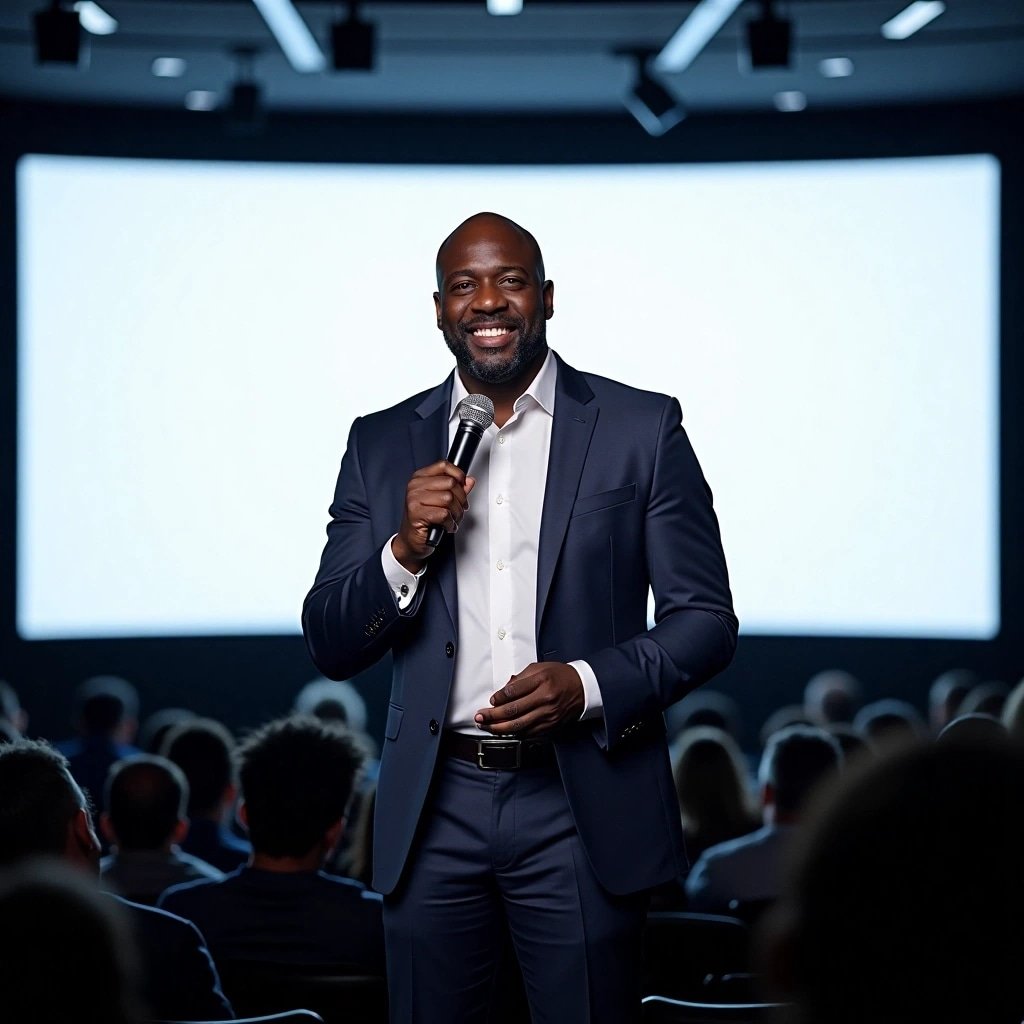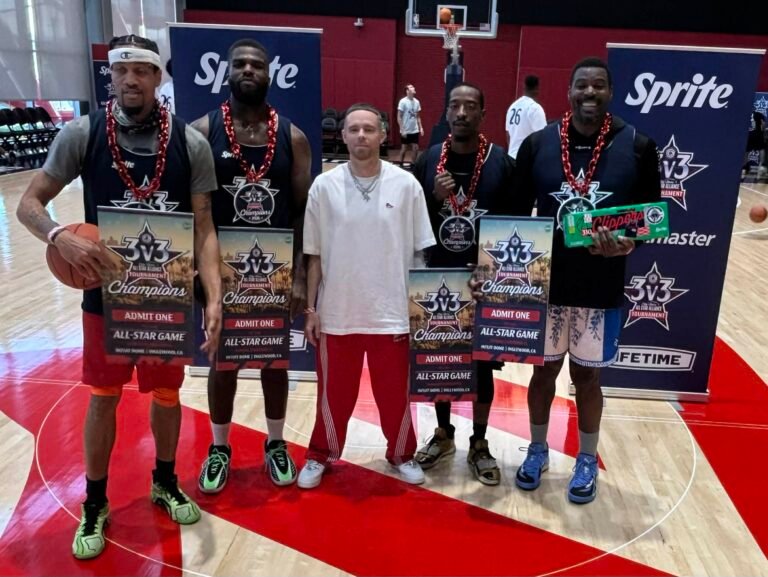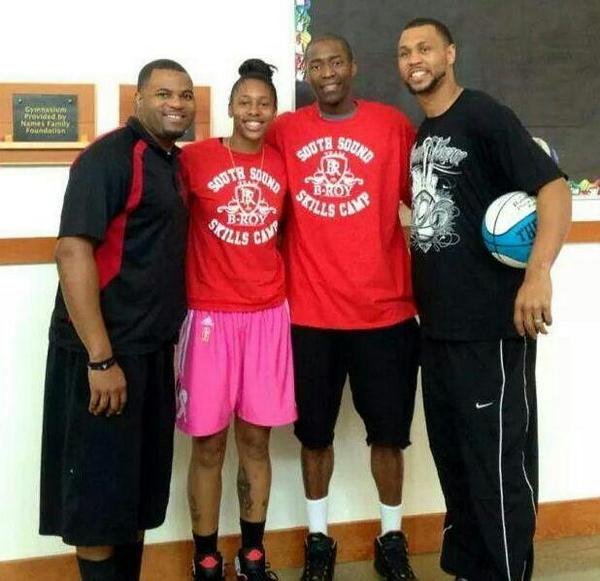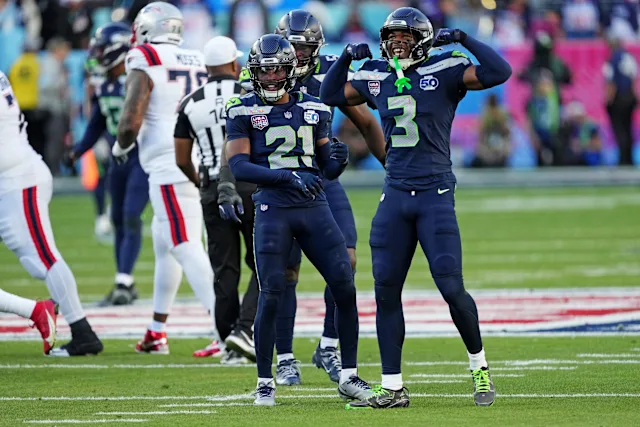
Brandon’ Scoop B’ Robinson, a widely recognized figure in sports journalism, recently had an open and insightful chat with former NFL running back Ricky Williams. The interview covered a broad spectrum of topics, including the enduring nature of fame, life after football, and a compelling question about Baltimore Ravens legend Ray Lewis’ intensity beyond the gridiron.
Known for his sharp and intuitive questioning, Scoop B once again demonstrated why his interviews resonate across generations. Williams’ recent conversation was no exception, providing a comprehensive look at the mental, emotional, and cultural dynamics of athletes long after they have retired from the field.
Ray Lewis: Is the Fire Still Burning Off the Field?
During the conversation, Brandon Robinson asked one of the most compelling questions of the interview.
“Is Ray Lewis as intense off the field as he is during games?”
This question addresses the core of what fans frequently inquire about NFL legends. Ray Lewis, the two-time Super Bowl champion and Pro Football Hall of Famer, was a force to be reckoned with on the field.
Lewis’ high-octane leadership and emotion were embodied by his intimidating tackles and spine-tingling locker room speeches. According to many who’ve interacted with him, including peers like Ricky Williams, that energy doesn’t fade, it transforms. Ray Lewis has maintained his passion and command off the field, but his focus has switched to mentorship, motivational speaking, spiritual growth, and helping others find their purpose. Lewis is now lighting stages across the country as he addresses CEOs, youth groups, and sports teams, fueled by the same fire he ignited on Sundays. His impact persists, just with a different perspective.
Ricky Williams on Fame: “It’s Generational Now”
Ricky Williams shared a deeply personal and insightful reflection as the conversation shifted to fame.
“There’s a couple of spots in Miami, a couple in New Orleans, and DEFINITELY some spots in Austin, Texas. But it’s interesting… because as a kid, I used to think that fame didn’t last forever. But in real life, it’s generational, you know? Thank God for YouTube because kids can go back and watch videos.”
According to Williams, the internet has immortalized greatness even though the crowd’s noise may fade away. Fame was tied to the present in the past. People wouldn’t remember you if you weren’t in the papers or on TV. Athletes’ relevance has been preserved and extended by platforms like YouTube, TikTok, and social media over the years. Reliving iconic moments allows a new generation of fans to create cultural continuity for legends such as Williams and Lewis.
Post-Career Recognition: Free Meals and Fading Attention
Robinson also posed a playful but revealing inquiry:
“Is there anywhere you still travel to where you can get a free meal because of your NFL days?”
Williams reacted with his distinctive blend of humor and profundity. He mentioned Miami, New Orleans, and Austin again, acknowledging that his legacy still earns recognition in certain areas. He admitted that those occurrences become less common over time. This underscores a key reality for professional athletes: even legends fade from public memory unless their stories are kept alive, either through media coverage or personal storytelling.
Television vs. Authenticity: Why Ricky Williams Hesitates
Perhaps the interview’s most vulnerable moment was when Scoop B asked:
“Are you interested in getting back on television to share your story and message?”
Williams’ response was clear:
“I mean, I would like to get the word out, but honestly, I don’t really like television that much… there’s always an expectation to be a certain way. It’s a great medium, but there’s a level of ‘fakeness’ that comes along with it.”
The response reflects the inner conflict that many former athletes experience. Television is a powerful tool for exposing people, but it often requires conformity, such as a specific image, personality, or storyline. For Williams, who has chosen a spiritual and unconventional path after football, the artificiality clashes with his truth.
He has opted for platforms that allow him to speak freely and connect on his own terms, such as podcasts, workshops, and wellness ventures.
Ray Lewis and Ricky Williams: Two Legends, Two Paths
Despite their disparate playing styles, Lewis, the fiery linebacker, and Williams, the introspective running back, both men represent the depth of life after the NFL. Lewis has embraced the role of motivational speaker, spiritual advisor, and cultural influence. He frequently talks about purpose, discipline, and transformation, and it brings the same emotional impact he used to rally the Ravens’ defense.
Williams has chosen a more all-encompassing approach, indulging in astrology, wellness, cannabis education, and personal healing. Although his approach is quieter, it still has an impact. He encourages former athletes to go beyond fame and seek inner peace. In their respective ways, both men challenge the myth that athletes are only valuable during their prime. They show that legacy isn’t just about records; it’s about reinventing ourselves.
Brandon “Scoop B” Robinson: A Conduit for Authentic Conversation
Brandon Robinson’s skill in creating a space for honesty is what makes this interview shine. He is a trusted interviewer for athletes past and present because of his reputation as a storyteller who values depth over drama. Instead of promoting viral soundbites, Scoop B allows guests like Ricky Williams to reflect, explain, and change in real-time. It’s no surprise that his conversations often reveal the untold truths about sports icons.




